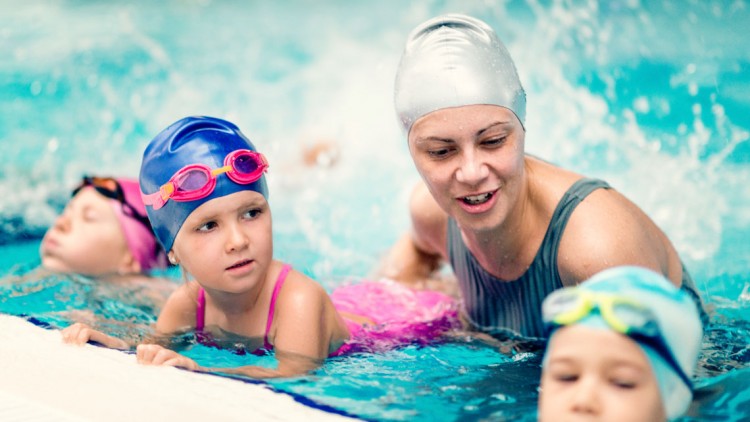Swimming is an enjoyable activity, so much so that research has proven that people tend to last longer while exercising on land than they do in water. This claim is not baseless, as regular swimmers normally spend longer hours in the pool before they experience joint and muscle pains than they normally would on land. The health benefits are numerous, with research proving that the risk of death from chronic illnesses is halved by about half when one does regular swimming exercises in water. Patients suffering from diabetes or heart disease reduce the severity of symptoms by participating in two hours of swim therapy daily. Swimming in warm water has also been proven to improve the mood for both men and women.
 An interesting idea, driven by these proven health benefits of swimming, is developing among parents. Many people encourage their young ones to embrace swimming, but swimming for babies seems an unheard of topic, until one looks it up and discovers that baby swimming is actually a growing, and beneficial trend. The idea of your baby taking baby swimming classes is not a strange topic, and has its own pros and dangerous cons. For babies, the simple things that a grown up would deal with easily are more difficult to control and take care of.
An interesting idea, driven by these proven health benefits of swimming, is developing among parents. Many people encourage their young ones to embrace swimming, but swimming for babies seems an unheard of topic, until one looks it up and discovers that baby swimming is actually a growing, and beneficial trend. The idea of your baby taking baby swimming classes is not a strange topic, and has its own pros and dangerous cons. For babies, the simple things that a grown up would deal with easily are more difficult to control and take care of.
The perfect time for introducing the baby to swimming lessons in Sydenham is when they are a few months old. Most will have some experience with water when they are having a bath, but most of the memories are normally negative in nature. The change from operating in the air to water can be a shock to the body of the baby because of the increased resistance. This stimulates the tactile muscles in the body and as the muscles stay more active, they stimulate the neural pathways to the brain. By extension, swimming at an early age encourages brain activity and growth of body power.
A baby swimming school takes advantage of the fact that the baby is still open minded t such an early age. They are curious and most of the time will have more of a positive attitude towards the water. Introducing the child to swimming at a later age may be difficult because they will have developed a negative attitude towards water. Even for older toddlers, they reach a stage where they are clingy and tend to stick to their parents. This means that will be harder to convince to get used to the teacher and the discomfort of the water.
The aim of introducing the baby to swimming is to help them learn to swim, and have fun doing it. The swim-float-swim technique is a must learn for children and is used all over the world for emergency situations. According to the United States national institute of health, swimming at such an early age reduced significantly the risk of drowning for children younger than four years. Children who learn swimming at an early age are ready psychologically, physically and emotionally for the challenges of early life like school.
